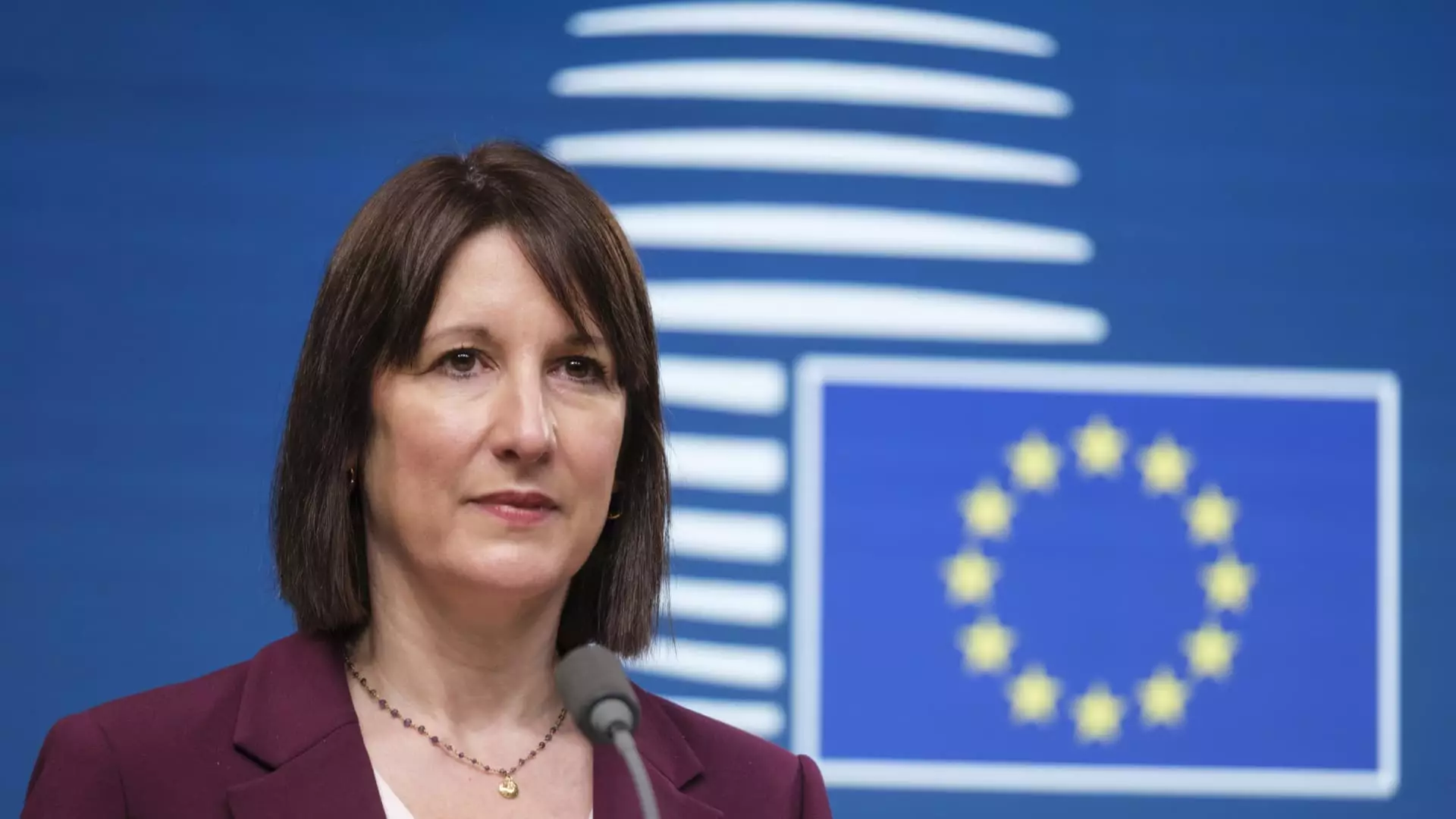In a significant diplomatic gesture, U.K. Chancellor Rachel Reeves arrived in Brussels to engage with European Union officials for the first time since the United Kingdom’s exit from the EU in 2020. This meeting marks a noteworthy moment in the context of the evolving international landscape, especially as the imminent presidency of Donald Trump threatens to reshape traditional alliances. The discourse among Reeves and her counterparts reflects a mutual recognition of shared interests that transcend individual political agendas, focusing instead on collective security and economic resilience in times of increasing global uncertainty.
The Eurogroup President, Paschal Donohoe, expressed hopes for this rendezvous to herald an era of renewed cooperation between the U.K. and the EU. As both parties seek to navigate a tumultuous political reality, the sentiment among EU officials reveals an overarching desire for unity, especially regarding issues like support for Ukraine, strategies for free trade, and durable economic partnerships.
Reeves and her EU counterparts have outlined three primary areas ripe for collaboration: unwavering support for Ukraine amidst ongoing conflict, advocacy for free trade, and the fortification of bilateral economic ties. While the specifics of the discussions remain largely confidential, the broad implications of these themes indicate a strategic realignment aimed at shielding both the U.K. and the EU from potential economic repercussions stemming from a shift in U.S. foreign policy under Trump’s administration.
The introductory meeting is cloaked in ambition, hinting at future engagements and a potential regrowth of the partnership—ones which seemed dimmed post-Brexit. U.K. Prime Minister Keir Starmer’s plans for further dialogues with EU leadership highlight a commitment to rebuilding trust. Starmer is expected to convene with European Council President Antonio Costa and participate in meetings of EU heads of state in 2025, demonstrating that the U.K. is keen to reposition itself as a key player in European politics.
The context of these discussions is underscored by concerns surrounding Trump’s recent statements regarding potential tariffs and reduced support for European nations and Ukraine. The uncertainty surrounding U.S. foreign policy instigates a need for both the U.K. and EU to forge deeper ties to counteract any detrimental effects envisioned from a more protectionist U.S. stance.
Former chief negotiator for EU trade discussions, Ignacio García Bercero, articulated the necessity of coherence in approach while reassessing relations with the U.K. By establishing a coordinated front in negotiations with the U.S., both the U.K. and EU can ensure that their strategic interests do not diverge or conflict, thus fostering a more robust alliance against external pressures.
The recent tumultuous years post-Brexit have presented significant challenges to U.K.-EU relations; however, the new Labour government seeks to usher in a change. Reeves emphasized her intentions not to initiate rigorous negotiations immediately but instead to foster a gradual rebuilding of trust that has frayed over time. By refraining from laying out demands or discussing potential re-entry into the EU, Reeves adopts a more diplomatic tone aimed at rapprochement rather than confrontation.
This approach signifies a fundamental attempt to reset the tone of the relationship by prioritizing dialogue—the foundation upon which sustainable partnerships are built. While the prospects of deepening relationships are optimistic, the complexities of Brexit and past confrontations hang in the air, requiring a careful balance of openness and pragmatism.
As both the U.K. and EU strategize on how to navigate the uncertainties spawned by the incoming U.S. leadership, the direction of their relationship hangs in a delicate balance. By emphasizing shared values and interests in areas of critical importance, both actors appear poised to cultivate a stronger alliance. The next steps—how these initial meetings translate into actionable commitments—will be pivotal. Whether the U.K. and EU can truly overcome their uneasy history and forge a path of genuine cooperation remains to be seen, but signs point to a renewed commitment to navigating the ever-evolving geopolitical terrain together.


Leave a Reply